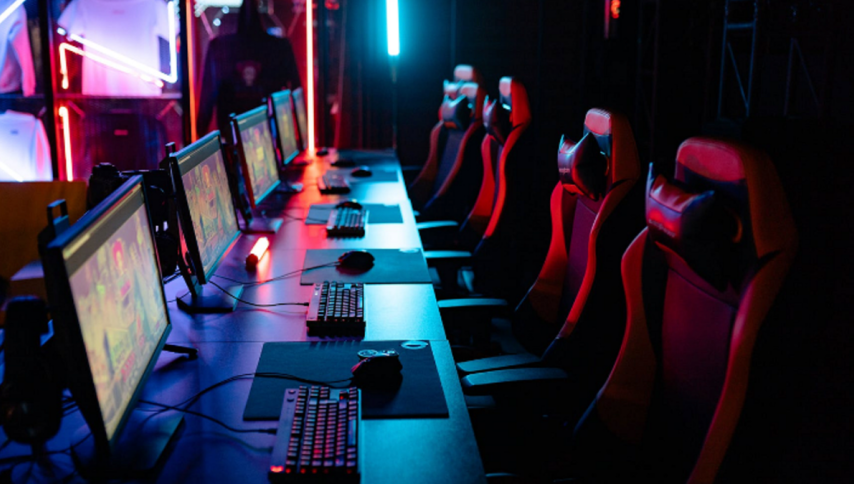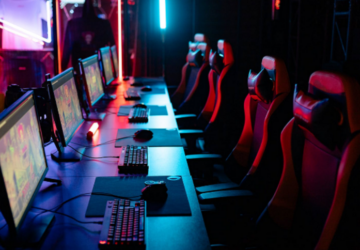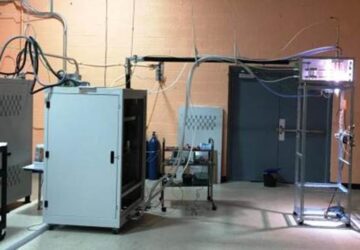Is your PC equipped to handle the demands of the next generation of games? Are the components inside your system powerful enough to support cutting-edge graphics, faster processing speeds, and immersive gameplay experiences? Understanding whether a high-performance computer is ready for next-gen titles requires a closer look at the hardware requirements and upgrades that are becoming standard.
What Makes a Gaming System Ready for the Future?
As games push the limits of graphics, physics, and artificial intelligence, the performance requirements for a gaming pc increase. Next-generation games often feature ultra-realistic visuals, large open worlds, and more complex AI, all of which demand significant computing power. The core components of a high-powered PC—such as the CPU, GPU, RAM, and storage—play an essential role in ensuring smooth performance. But what should be checked to guarantee your system meets the challenge?
Crucial Components for Future-Ready Gaming Setups
Focusing on upgrading or maintaining the following components is important to ensure a gaming setup is prepared for the demands of future games.
1. CPU: The Power Behind Processing
The central processing unit (CPU) is crucial for a smooth gaming experience. As games become more CPU-intensive, particularly with more complex AI and larger worlds, the importance of a high-performance CPU grows. A modern multi-core processor ensures that games run smoothly, even with other background applications running. Look for processors with at least six cores and 12 threads for next-gen games.
2. GPU: The Heart of Graphics
The graphics processing unit (GPU) handles everything related to the visuals in a game. From rendering stunning terrains to handling high-resolution textures and special effects, a powerful GPU is vital. GPUs that support technologies like ray tracing and DLSS (Deep Learning Super Sampling) are essential for the next wave of games, offering lifelike graphics and smoother frame rates. For the future, a high-end GPU will be crucial to enjoy demanding games at ultra settings.
3. RAM: Speeding Up Gaming Performance
A gaming pc needs sufficient RAM to manage game processes and multitasking. For next-generation games, 16GB of RAM is often considered the baseline, with many high-performance setups opting for 32GB or more. Faster memory speeds also provide an edge in smoothness, particularly for more complex games and multitasking.
4. Storage: No More Waiting
No more waiting around for slow hard drives to catch up. A solid-state drive (SSD) has become the standard for a performance-oriented system, offering speedy load times and system responsiveness. With games becoming larger in file size, investing in a high-capacity SSD (1TB or higher) will ensure enough space for modern titles, while the speed of an NVMe SSD will enhance load times even further.
5. Motherboard: Compatibility and Expansion
While the CPU, GPU, RAM, and storage components are critical, the motherboard plays a central role in ensuring everything works together efficiently. For faster data transfer rates, a future-proof motherboard should support the latest technologies, such as PCIe 4.0 or even PCIe 5.0. Ensure the motherboard is compatible with your chosen components and has expansion slots for future upgrades.
6. Power Supply: Reliability and Stability
With more powerful components comes the need for a reliable power supply unit (PSU). A high-quality PSU will provide stable power to your components without any risks of sudden shutdowns or power surges. Opt for a PSU with a rating of at least 80 Plus Gold to ensure energy efficiency and longevity for your system.
How to Ensure Your PC Is Ready for Next-Gen Games
Once the components are assessed, how can gamers ensure their computers will run the latest games smoothly? It’s about balancing performance with future-proofing strategies. Here are some tips for preparing a gaming rig for upcoming releases.
- Update Drivers and Software
Outdated drivers can significantly reduce gaming performance. Regularly updating the graphics card drivers and system software ensures that the high-performance computer remains compatible with the latest technologies. These updates often include optimizations for new games, bug fixes, and enhanced stability for a smoother gaming experience.
- Optimize Settings for Performance
Even the most powerful PC may need adjustments to get the best performance. Tweaking in-game settings, adjusting resolutions, and turning off specific visual effects can improve frame rates. Customizing settings based on individual game requirements helps strike the perfect balance between visual quality and smooth gameplay.
Many specialized service providers offer custom builds and expert upgrades, modifying systems to meet specific gaming needs. Their ability to understand the nuances of performance, be it selecting the optimal GPU, fine-tuning RAM, or enhancing cooling systems, ensures that the gaming setup is future-proof. With such attention to detail, even the most complex titles run smoothly.
A gaming pc plays a vital role in unlocking the full potential of next-gen titles. As gaming changes, the demand for more robust hardware only increases. The combination of powerful processing units, high-performance graphics, and ample storage capacity allows for a smoother, more immersive gaming experience. Ensuring that all components are up to date and well-integrated ensures a seamless transition into new gaming experiences.







